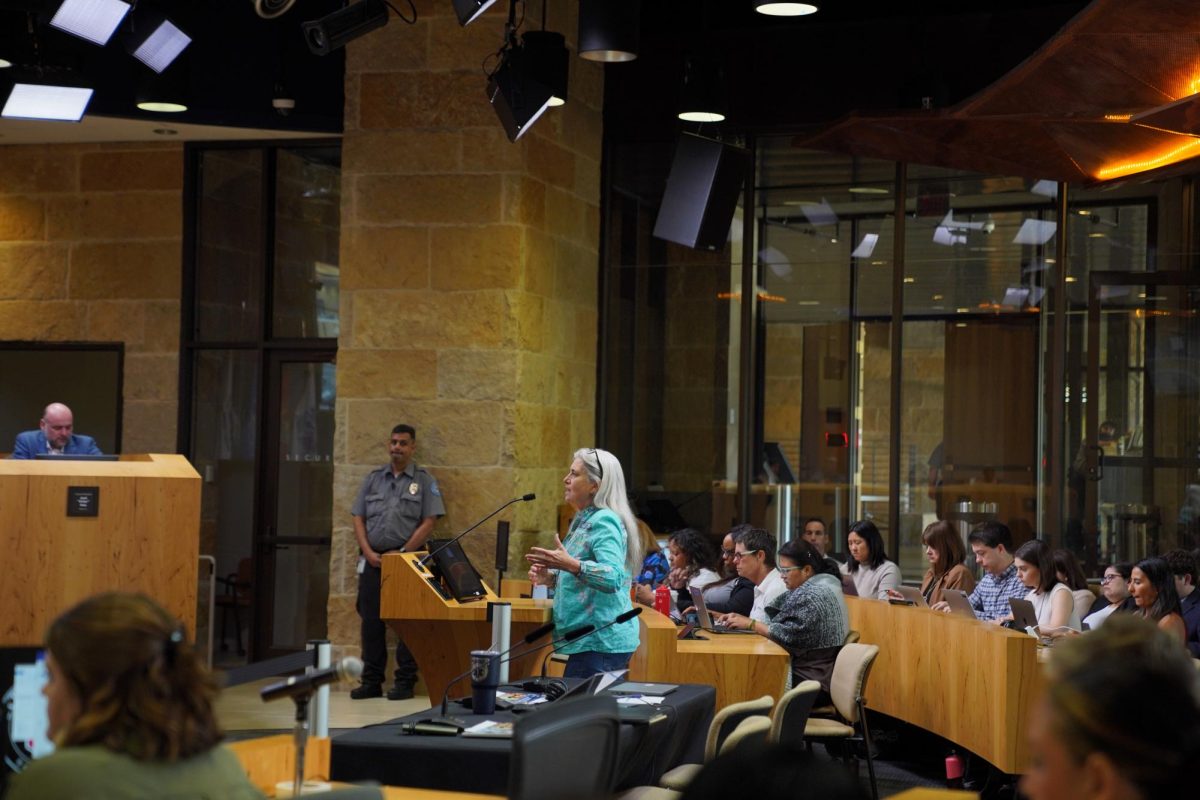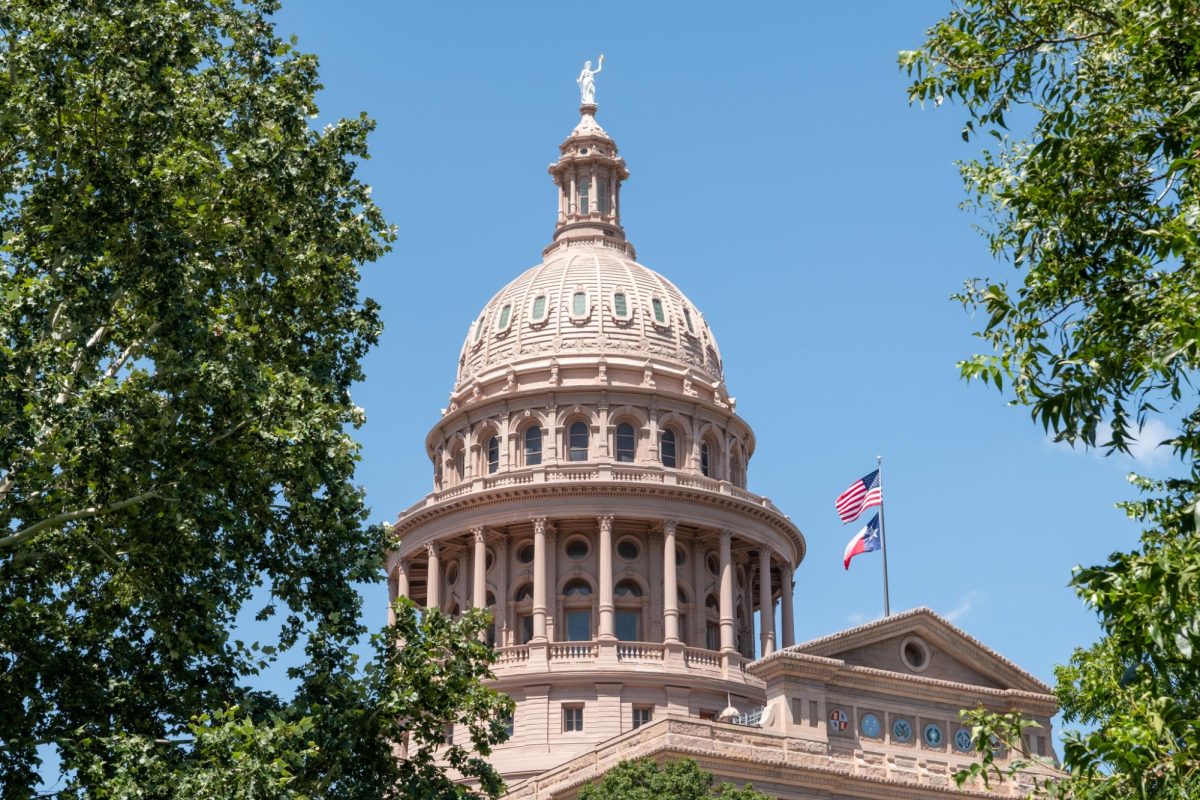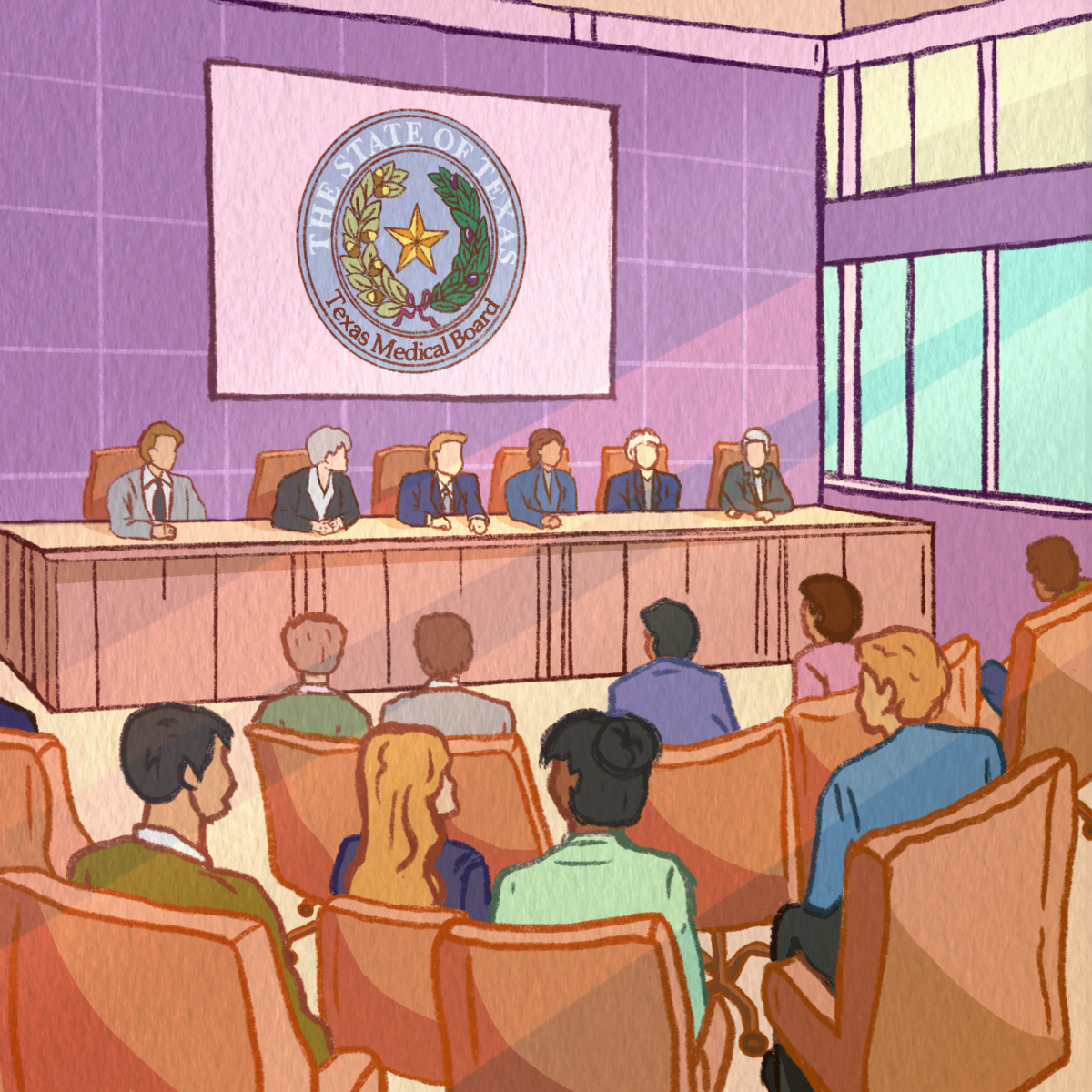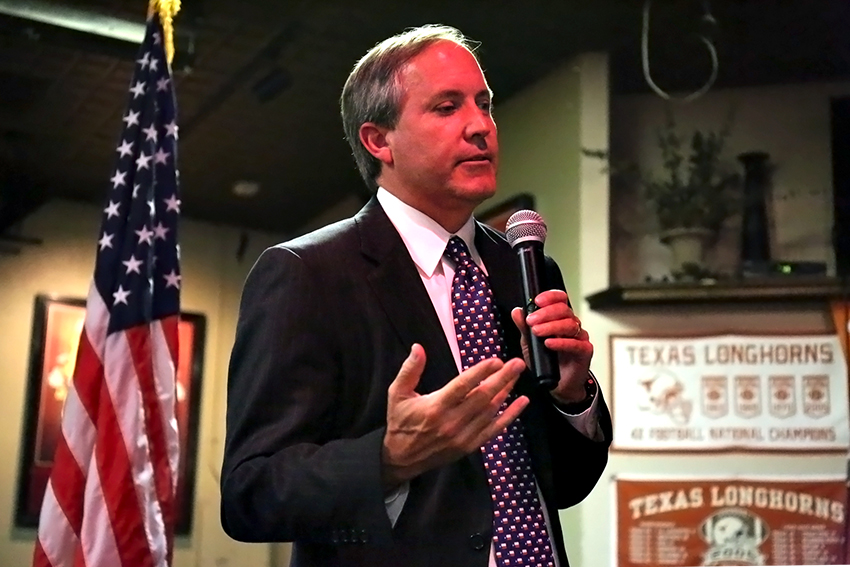A wrecked pick-up truck stood out against the Capitol lawn Wednesday as legislators and members of the media mourned the death of 17-year-old Alex Brown and discussed ways to prevent texting while driving.
The Brown family spoke at a press conference at the Capitol in support of a State House bill that would ban sending and viewing text messages and e-mails on wireless communication devices such as cell phones while operating a moving motor vehicle. Orange wristbands with the slogan Texting and Driving: It Can Wait and pamphlets on the dangers of texting and driving were available. State representatives spoke about the bill, but Rep. Tom Craddick, R-Midland, who authored the bill, had a a medical emergency just before the press conference.
Alex Brown died in a car wreck on her way to school in 2009 in Dripping Springs. She was texting four friends while driving. The Brown family now travels around Texas with Alexs truck in tow speaking at high schools and other venues about the dangers of texting while driving.
According to research by the Virginia Tech Transportation Institute, texting while operating a motor vehicle makes you 23 times more likely to have a wreck. According to a study released by the British Medical Journal, talking on a cell phone while operating a motor vehicle makes you four times more likely to have a wreck the same as if you were over the legal alcohol limit while driving, said Jeanne Brown, Alexs mother. The part of our brains we use to operate the car is the same we use to text, she said.
My husband and I would always text and drive, and we would tell our kids, Dont you do it, yall arent mature enough to handle that, Jeanne Brown said. Alexs wreck didnt have to happen. It was a choice she made to use her cell phone in the car. We want to teach kids that life is more valuable than a text message. I do believe this bill can save lives.
In Texas, minors cannot text while driving, and cell phone use is prohibited in school zones, said Rep. José Menéndez, D-San Antonio, who has pitched legislation on texting while driving before.
I dont think weve gone far enough, he said. But I do think this bill will make the roads of Texas safer, so Im 100 percent behind this effort. Weve got to take every step we can to improve the roadways.
Between 2005 and 2010, more than 1,700 drivers caused crashes by texting while driving in Texas, with four fatalities in 2009, according Texas Department of Transportation reports. Cell phone laws are essential for keeping Texas roadways safe, Menéndez said.
Its obvious that distracted driving is a problem in Texas, he said. With so many people on the roads, especially younger drivers, we have to keep people aware of the dangers.
Title 12 of the Austin City Code dictates a citywide ordinance that prevents drivers from using wireless communication devices to view, send or compose an electronic message. Each offense could incur a fine of up to $500, although first offenders can defer the fine in favor of a defensive driving course, said Jason Dusterhoft, Austin Police Departments commander of highway enforcement.
At least two dozen other Texas cities have bans on texting while driving, including El Paso and San Antonio.
The House bill could prevent accidents by providing concrete legal consequences, said Latin American studies sophomore Mary Catherine Driese.
I admit to doing it, Driese said. As much as everyone does it and we know its not good to do, there arent any consequences aside from when its gone too far. We would do it less if there were consequences that came before dying in a car wreck.




















